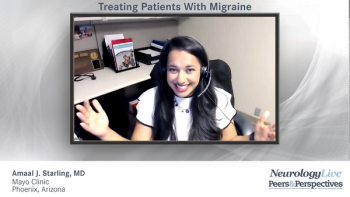
What physicians in the community need to know about treating patients with migraine in community settings, and resources that can help locate certified headache specialists or other migraine specialists for referral.
Chairperson, Patient Leadership Council, National Headache Foundation; board member, Coalition for Headache and Migraine Patients; and board member, Alliance for Headache Disorders Advocacy

What physicians in the community need to know about treating patients with migraine in community settings, and resources that can help locate certified headache specialists or other migraine specialists for referral.
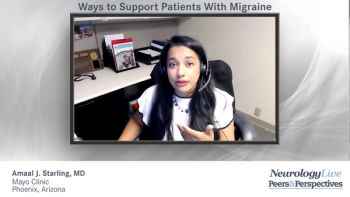
Various ways health care professionals can become involved in migraine advocacy, and tips that can be used in the clinic to support patients.
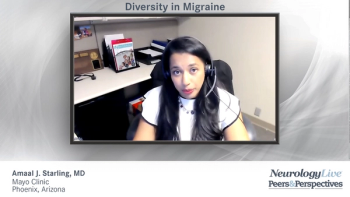
Considerations for addressing current limitations in the diagnosis and management of migraine in black, indigenous, and people of color.
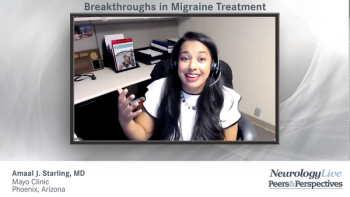
Reactions to advances in migraine treatment, specifically with the development of disease-specific targeted therapies.
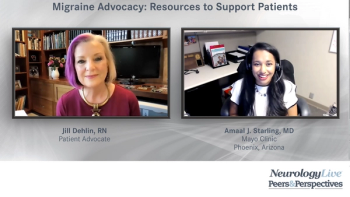
Educational resources that health care professionals should consider recommending to help support patients with migraine.
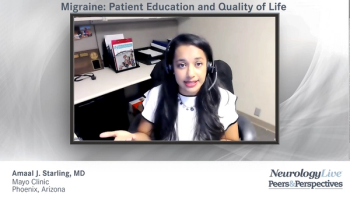
Dr Amaal J. Starling describes her approach to educating patients on treatments for migraine and explains why shared decision making is so important.
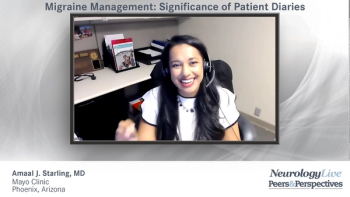
Limitations of current pain scales used by health care professionals who manage patients with migraine, and considerations for using patient diaries to help monitor symptoms and recommend appropriate therapy.
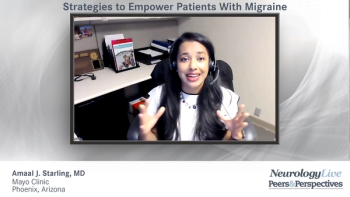
An overview regarding the various phases of migraine and recommendations for using empowering language when educating patients on what to expect from attacks.
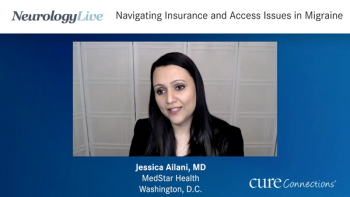
Current hurdles faced by neurologists when prescribing therapy to treat migraine and advice to help other healthcare professionals as well as patients navigate insurance and access issues.
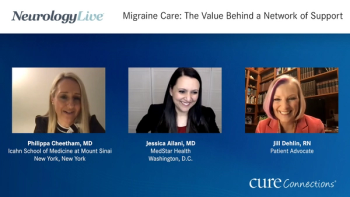
A patient advocate, Jill Dehlin, RN, explains why patients with migraine should connect with other patients via patient support programs and take a proactive role in managing their condition.
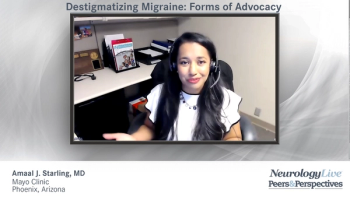
Examples of migraine advocacy as it pertains to health care professionals and advice for clinicians who manage patients with migraine to help address the stigma often associated with the condition.

Amaal J. Starling, MD, of Mayo Clinic, expresses how common and disabling migraine is on patients and comments on the stigma associated with the condition.
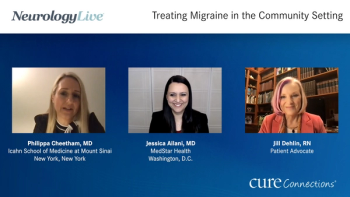
Advice to community neurologists and other care providers who may treat patients with migraine in the community setting on incorporating newer therapies, such as CGRP inhibitors, into practice, and a list of reputable resources where patients can turn for additional support.
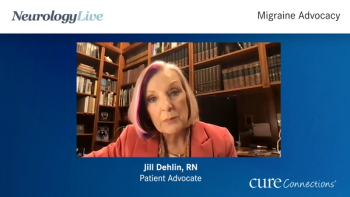
Jill Dehlin, RN, describes her role as an advocate in supporting others with migraine and connecting them to the support and resources needed to best manage their condition.
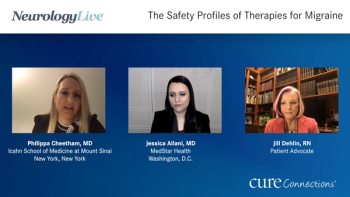
The potential connection between risk of dementia in patients treated with triptans for migraine as compared to the safety profiles of newer CGRP monoclonal antibodies.
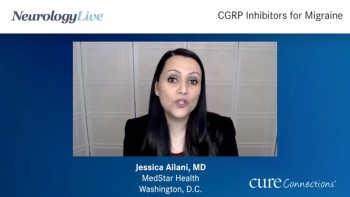
Jessica Ailani, MD, of MedStar Health, describes the mechanisms of action and indications for use of currently available CGRP inhibitors for migraine.
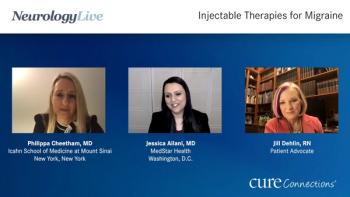
Jill Dehlin, RN, a patient with migraine, talks about her experience receiving a subcutaneous injectable CGRP inhibitor, and neurologist Jessica Ailani, MD, explains what she counsels her patients on when prescribing a newer injectable treatment.
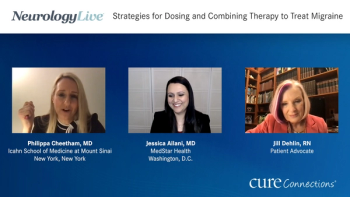
Jessica Ailani, MD, a neurologist from MedStar Health, shares insight on best practices for dosing therapies used to treat migraine and implications for combining drugs together.
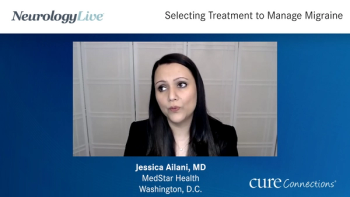
Variables that neurologists and other healthcare professionals need to consider when selecting an appropriate prescription therapy for migraine, and recommendations by a patient advocate on staying adherent to therapy and predicting attacks.
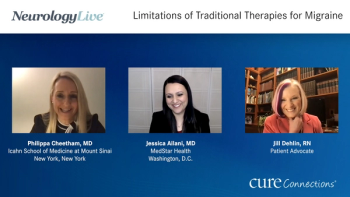
Limitations, in terms of safety and efficacy, of older conventional therapies used to treat migraine.
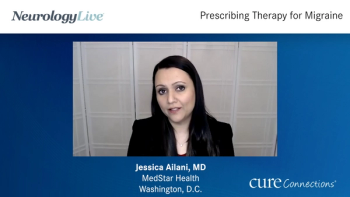
Neurologist Jessica Ailani, MD, explains when she feels it is most appropriate to treat migraine more aggressively with prescription drugs versus with lifestyle intervention.
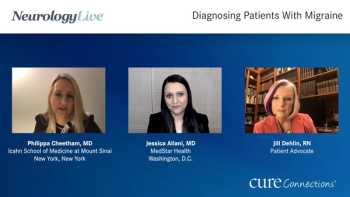
Jessica Ailani, MD, describes her approach to evaluating new patients for migraine and explains how her diagnostic work-up can impact her recommendations for treatment.
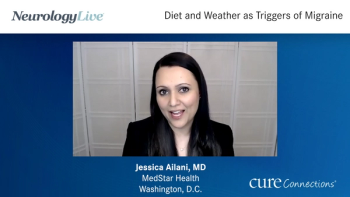
Types of foods and weather conditions that may trigger migraine attacks.
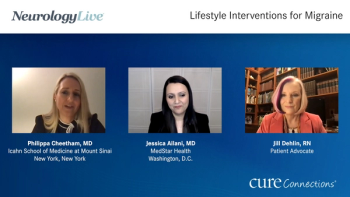
Recommendations for incorporating and adhering to lifestyle interventions that can help prevent migraine or reduce the severity of attacks.
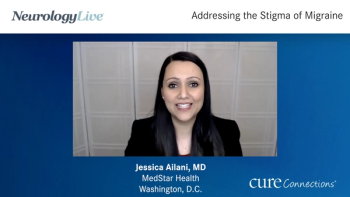
A panel of healthcare professionals and patient advocates with migraine recognize the social stigma associated with the condition despite its prevalence in the community.
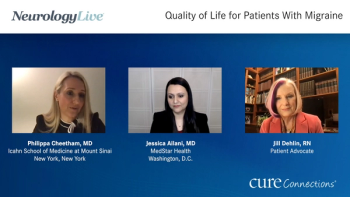
Philippa Cheetham, MD, and Jill Dehlin, RN, comment on the severity of migraine attacks and concerns that migraines may trigger more series events.
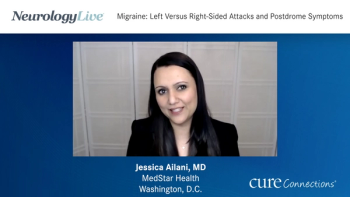
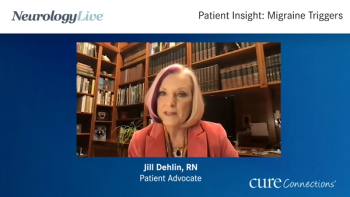
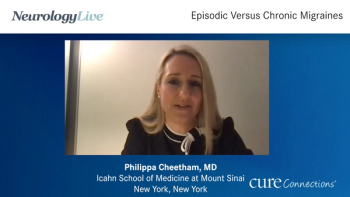
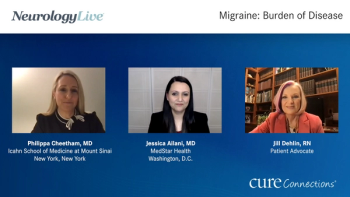

Published: May 7th 2021 | Updated:
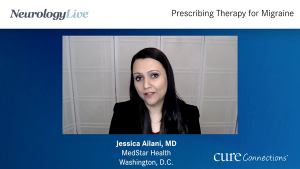
Published: March 31st 2021 | Updated:
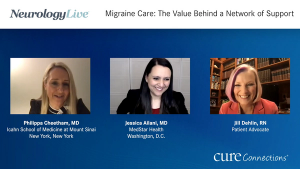
Published: May 5th 2021 | Updated:
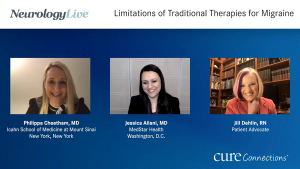
Published: April 7th 2021 | Updated:
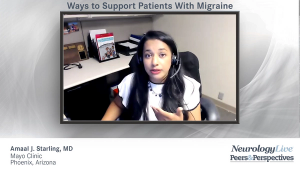
Published: May 27th 2021 | Updated:
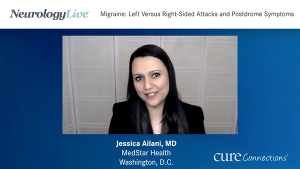
Published: March 10th 2021 | Updated: